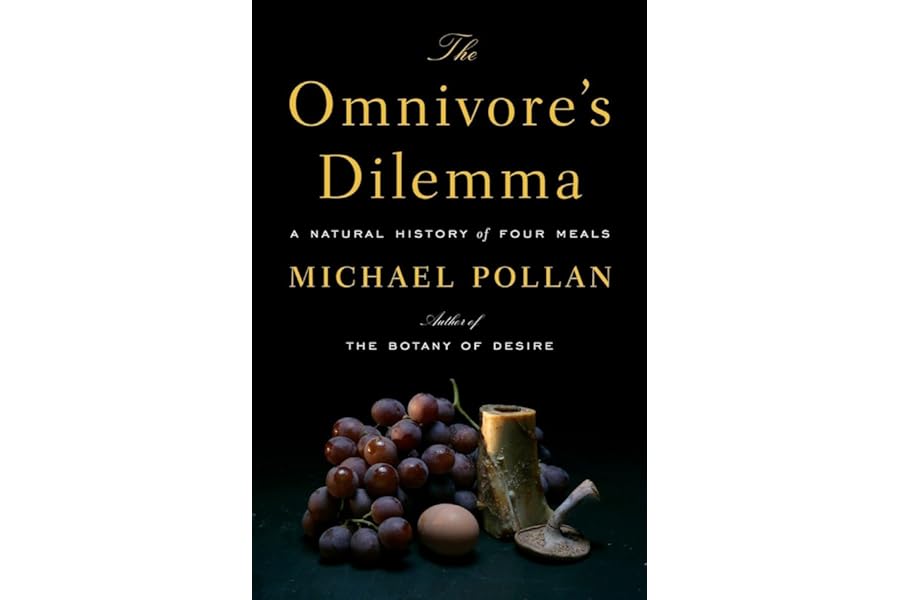One sentence summary:
“The Omnivore’s Dilemma” by Michael Pollan is a thought-provoking exploration of the food industry and the various ways humans obtain and consume food.
Book genre:
Non-fiction
Main topic of the book:
The food industry and its effects on our health, environment, and society.
Key ideas:
- Humans have evolved to be omnivores, but we face a dilemma in deciding what to eat due to the many choices available in modern society.
- Our food choices have significant impacts on our health, as well as on the environment and the economy.
- The industrialization of food production has resulted in a disconnection between consumers and the origins of their food, causing ethical and environmental concerns.
- By understanding where our food comes from and how it is produced, we can make more informed and responsible food choices.
Main parts of the book and a short summary:
Part One: Industrial – Corn
Pollan starts his investigation of the modern food industry by following the journey of corn, which is the main ingredient in many of our processed foods. He exposes the enormous amount of corn used in the food industry and how its overproduction has negative effects on our health, the environment, and the economy.
Part Two: Pastoral – Grass
The author then explores the alternative of pastoral agriculture, specifically organic and grass-fed farming. He follows the path of grass-fed cattle and sheds light on the benefits of this type of farming for the animals, the environment, and the consumers.
Part Three: Personal – The Forest
In this section, Pollan examines the idea of “hunter-gatherer” and tries to experience it firsthand by foraging and hunting his own food. He highlights the importance of understanding where our food comes from and reconnecting with the natural processes of obtaining our food.
Part Four: Industrial Organic – The Supermarket
The final part focuses on organic food and its role in the modern food industry. Pollan investigates whether organic is truly better for our health and the environment and challenges common perceptions about this growing trend.
Key takeaways:
- Humans have a responsibility to understand and make informed decisions about our food choices.
- The industrialization of food production has resulted in negative consequences for our health, environment, and economy.
- Alternative methods of agriculture, such as grass-fed and organic farming, can offer more sustainable and ethical options.
- By reconnecting with the origins of our food and supporting local and sustainable practices, we can create a healthier food system for ourselves and the planet.
Author’s background and qualifications:
Michael Pollan is an American author, journalist, and professor of journalism at the UC Berkeley Graduate School of Journalism. He is also a contributing writer for The New York Times Magazine and is known for his works on food and the environment. Pollan has won numerous awards for his writing, including the James Beard Award for his book “The Omnivore’s Dilemma.”
Target audience:
This book is targeted towards anyone interested in food, health, the environment, and the sociological impacts of food production and consumption. It is suitable for both general readers and professionals in the food industry and those looking to make more informed and responsible food choices.
Publisher and first publication date:
Penguin Press, 2006

